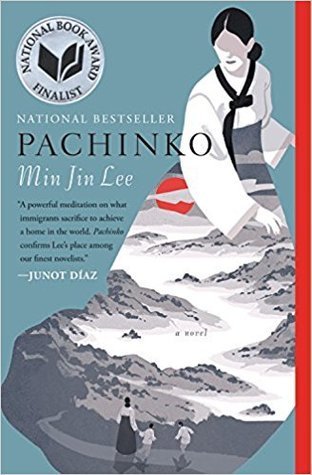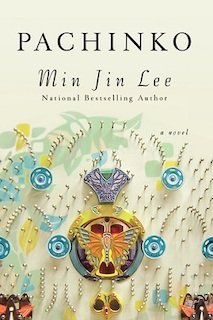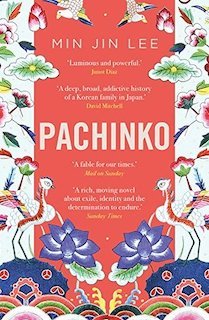Book Review - Pachinko - Min Jin Lee
‘Pachinko’ by Min Jin Lee starts in 1911, when Korea has been annexed by Japan. In a small fishing village, a couple take in lodgers to make some extra money, as times are hard. Their son is called Hoonie, and he marries Yangjin, and they have a daughter called Sunja. After Hoonie dies, a wealthy fish broker appears first on the scene, followed later by a young pastor, and the story really gets going, shifting to Japan, and ends in Tokyo in 1989.
During this time you have the Japanese occupation of Korea, WW2, Nagasaki and Hiroshima and the Korean war. There are also competing ideologies during this period, with Christianity and communism, Buddhism and Confucianism all vying for the hearts and minds of the population.
Korean - Japanese
‘Pachinko’ is the story of the plight of the Korean Japanese people. These events might be happening around them, but their focus is always on their family. With compassion and resilience they endure, looking after each other, dealing with whatever life throws at them.
‘Pachinko’ is a book very much about identity and I was shocked at the treatment of the Korean people in Japan. They are always outsiders, not even able to become citizens despite being born there. Even when they return to Korea, they are scorned – they are a new people, the Korean Japanese. They are discriminated against, stereotyped and never properly accepted into a Japanese society which is very rigid. How one character deals with this reminded me of ‘The vanishing half’ by Brit Bennett, another recent book I read about race.
It’s also about family, honour and shame, and has a cast of strong characters, from formidable, resilient women, determined to feed their families and keep a roof over their heads, and men who work hard but find their paths blocked by prejudice and discrimination. The narrative voices shifts throughout, and minor characters get heard too, some even towards the end, which I thought was quite brave. I did feel that Min Jin Lee felt it was necessary to fit in as many representative viewpoints as possible, but it had the effect of the book losing a little of it’s momentum, and for me just didn’t work as well as the earlier part.
Epic
‘Pachinko’ is an epic but the shifting narrative voices meant that some (for me) of the characters drifted away, not to be heard from again. It also meant that I didn’t quite grow as attached to some of the characters as I might have done. The writing is strong, descriptive and very engaging – it’s a book with a great flow and I never once tired of reading it, even if it is nearly 500 pages long. There’s a lot of compassion and sadness in the story too, as you’d expect.
What is a Pachinko?
I had never heard of the game ‘Pachinko’ but it seems to be a Japanese pinball machine game. Although gambling for money is illegal in Japan, balls won on these machines can be exchanged for vouchers in the pachinki parlours, and then exchanged elsewhere. The business is worth $200 billion dollars a year, making up 4% of Japans GDP. Because of the grey area it occupies between amusment games and gambling, it has often been associated with the Yakuza, the Japanese mafia.
Because they couldn’t find work elsewhere, Korean men in Japan turned to Pachinko. The metaphor for me is that the Pachinkio is a game of chance, in the same way that the lives of the people in this book are buffeted by outside, random forces. They try to get on with things, to do their best, but like Pachinko, the game itself is often slightly adjusted, meaning that they can never win. They can never be properly accepted in this society.
Pachinko Summary
I enjoyed ‘Pachinko’ and found it fascinating to learn about the plight of the Korean Japanese people, a part of history I knew nothing about. This is a multi-generational epic that focuses on a fascinating time period and shines a light on a part of history and people I was previously unaware of. It’s a big book but it’s narrative flow and engaging characters means it’s a story you can easily lose yourself in. It’ll also be interesting to see how ‘Pachinko’ works as a series on Apple TV but my guess is that it has all the ingredients to be a sumptuous K-Drama epic.
Update Nov 23: I have watched Pachinko on Apple TV - I really enjoyed it, and felt they did a really good job with it. It has a wonderfully sumptuous look, and I think they really brought across the importance of family, as well as keeping that epic sweep across history that the book doe so well. Not every adaptation is successful, but it’s safe to say this has been a success.
You’ll like Pachinko if you liked Homegoing by Yea Gyasi or The Vanishing Half by Britt Bennett
Book review - Pachinko by Min Jin Lee
496 pages,
February 7, 2017 by Grand Central Publishing




